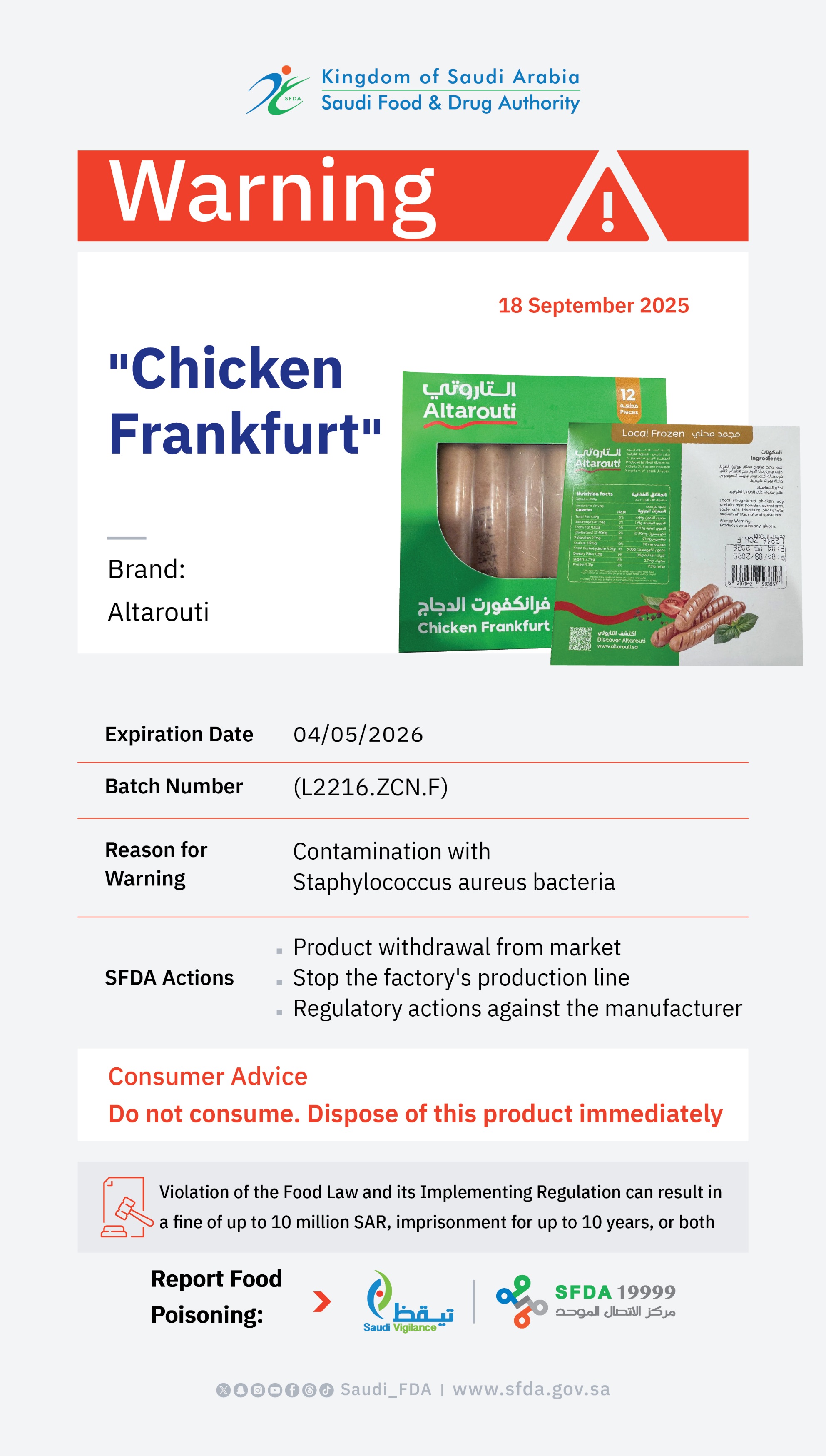
Information for Healthcare professionals about Exenatide (marketed as Byetta)
2007-10-22
October 16, 2007 , The U.S Food and Drug Administration (FDA), equivalents of the Saudi Food and Drug Authority (SFDA), informed healthcare professionals that it received 30 postmarketing reports of acute pancreatitis in patients taking Byetta, a drug used to treat adults with type 2 diabetes. An association between Byetta and acute pancreatitis is suspected in some of these cases.
Twenty-seven of the 30 patients had at least one other risk factor for acute pancreatitis such as gallstones, severe hypertriglyceridemia, and alcohol use. In six patients the symptoms of pancreatitis began or worsened soon after the dose of Byetta was increased from 5 micrograms twice daily to 10 micrograms twice daily. Twenty-one patients were hospitalized. There were no reports of hemorrhagic or necrotizing pancreatitis. However, five patients developed serious complications including dehydration and renal failure; suspected ileus; phlegmon; and ascites. Twenty-two of the 30 reports indicated that the patients improved after discontinuing Byetta..
Actions for the Healthcare professionals should follow:
· Healthcare providers should be alert to the signs and symptoms of acute pancreatitis. Symptoms include persistent severe abdominal pain that can radiate to the back and may be accompanied by nausea and vomiting. Acute pancreatitis is typically confirmed by the presence of elevated levels of serum amylase and/or lipase and characteristic findings by radiological imaging.
· Discontinue Byetta if pancreatitis is suspected. If pancreatitis is confirmed, do not restart Byetta unless an alternative etiology for the pancreatitis is identified.
Byetta currently is not register here in Saudi Arabia.
Report Adverse Drug Reactions to the Saudi FDA
The public and health professionals are encouraged to report adverse drug reactions of Exenatide) Byetta( to the National Pharmacovigilance center on the internet at:





